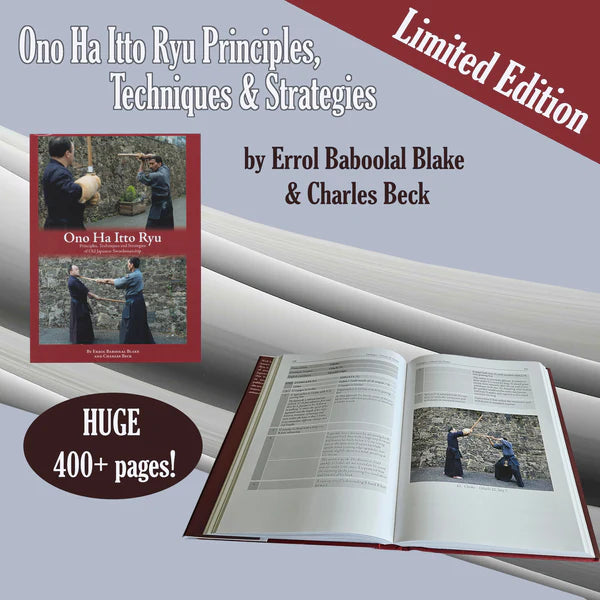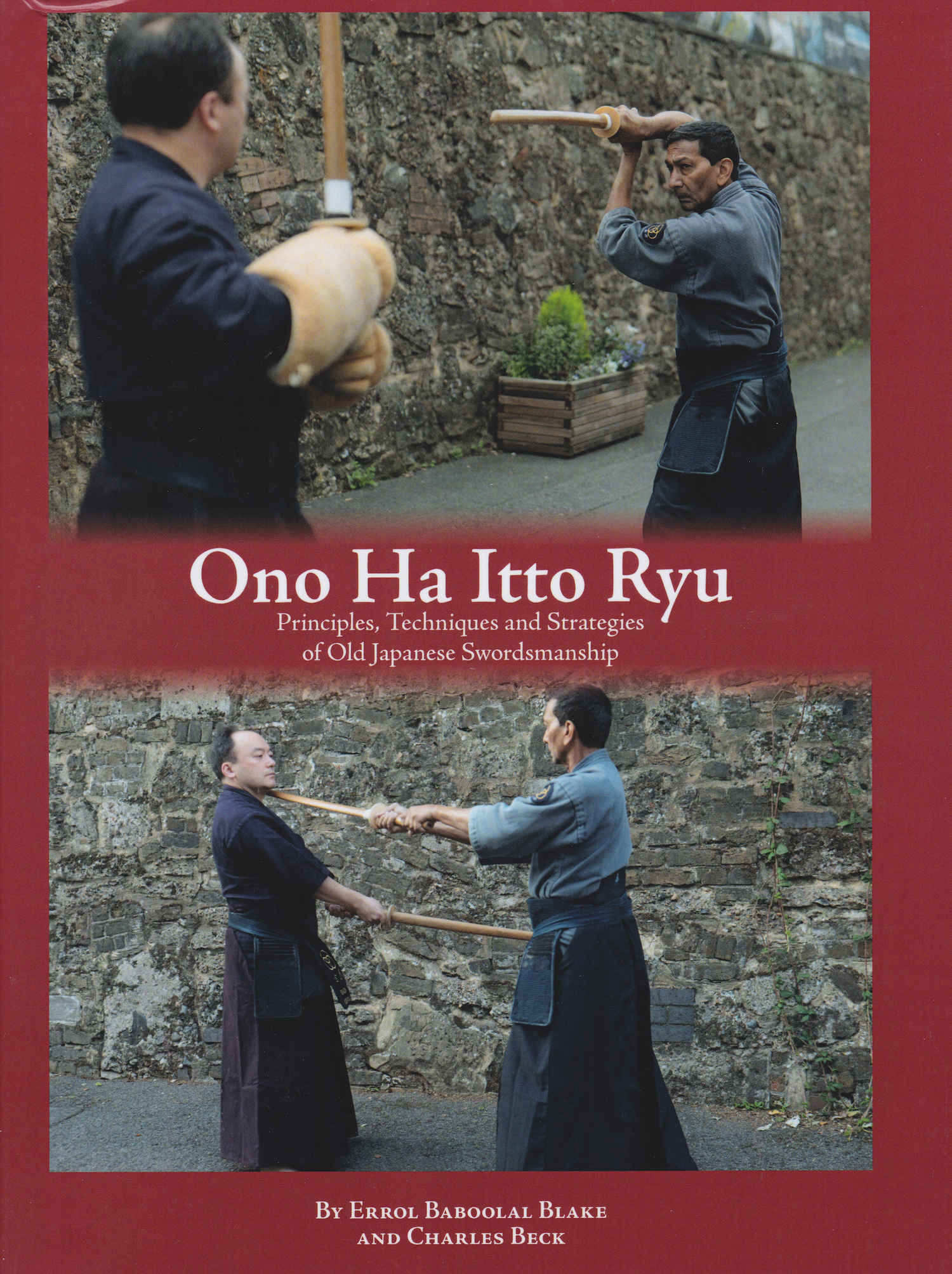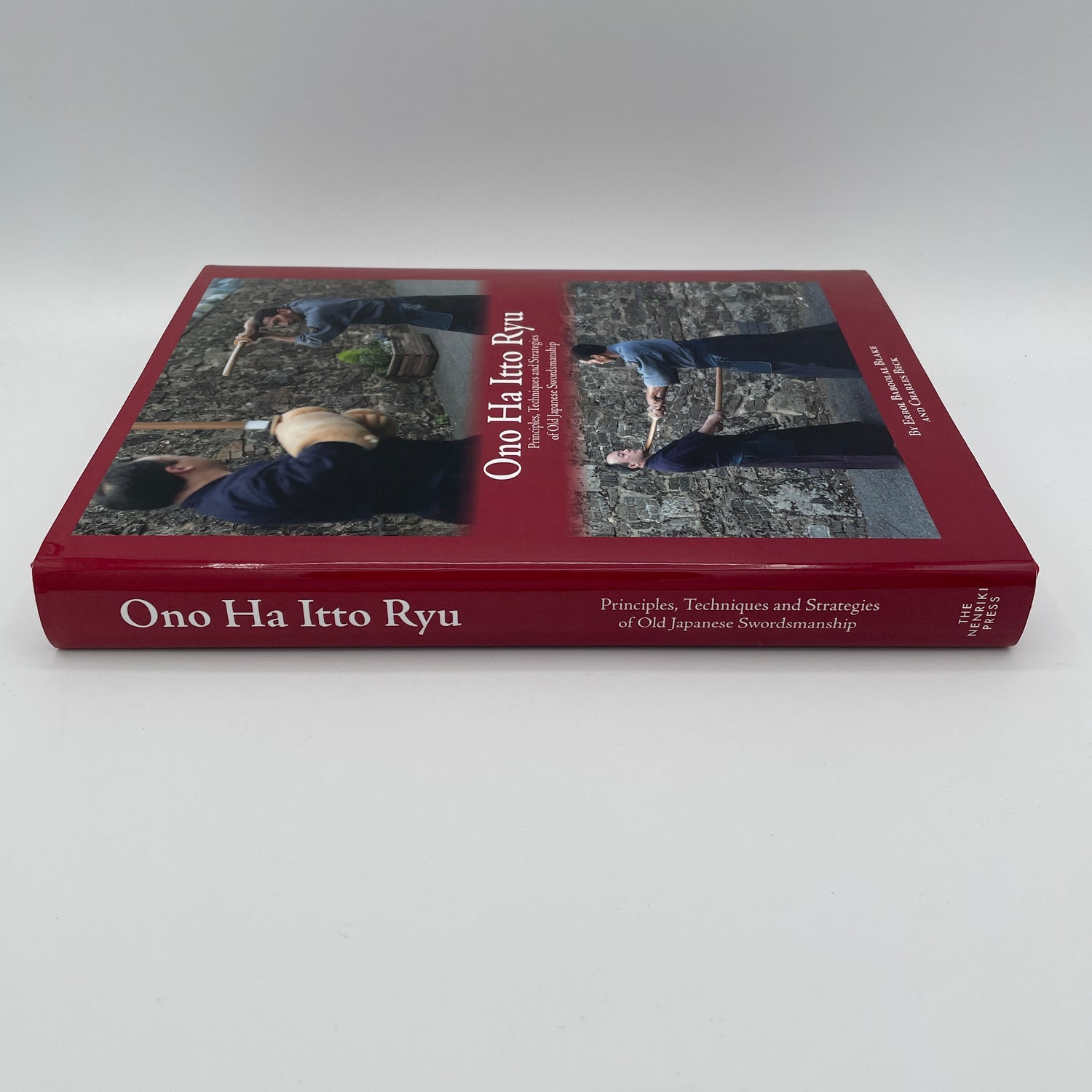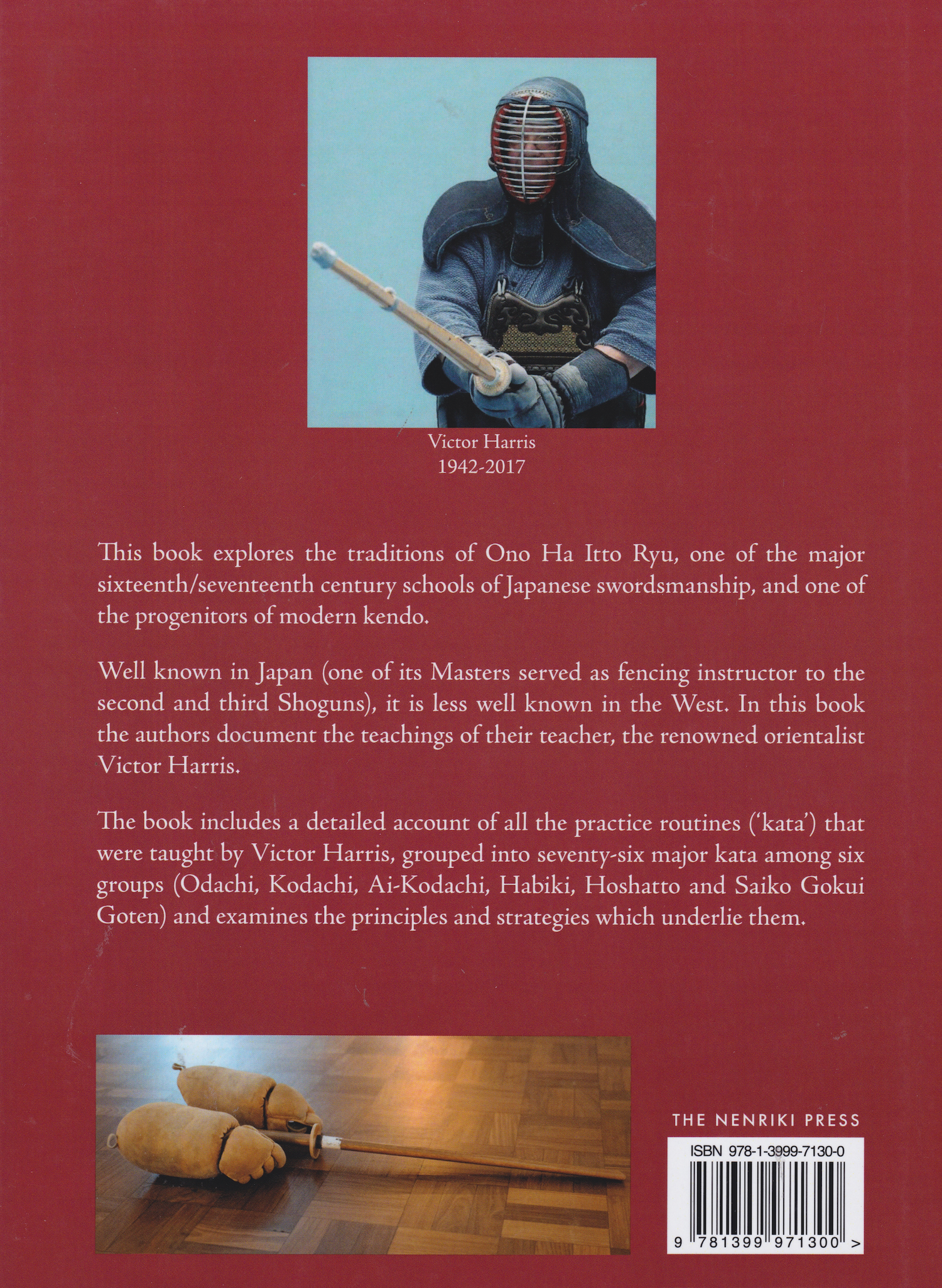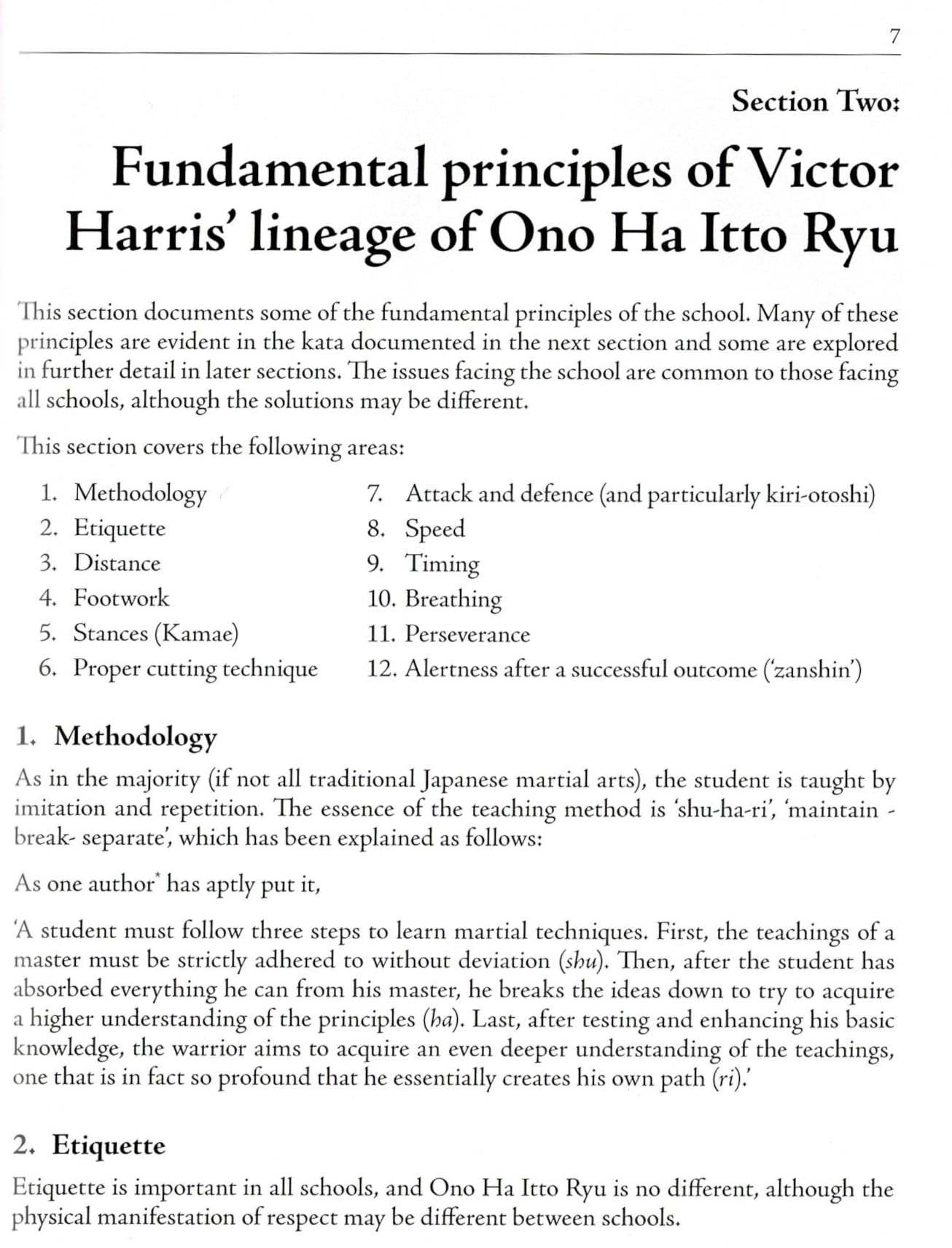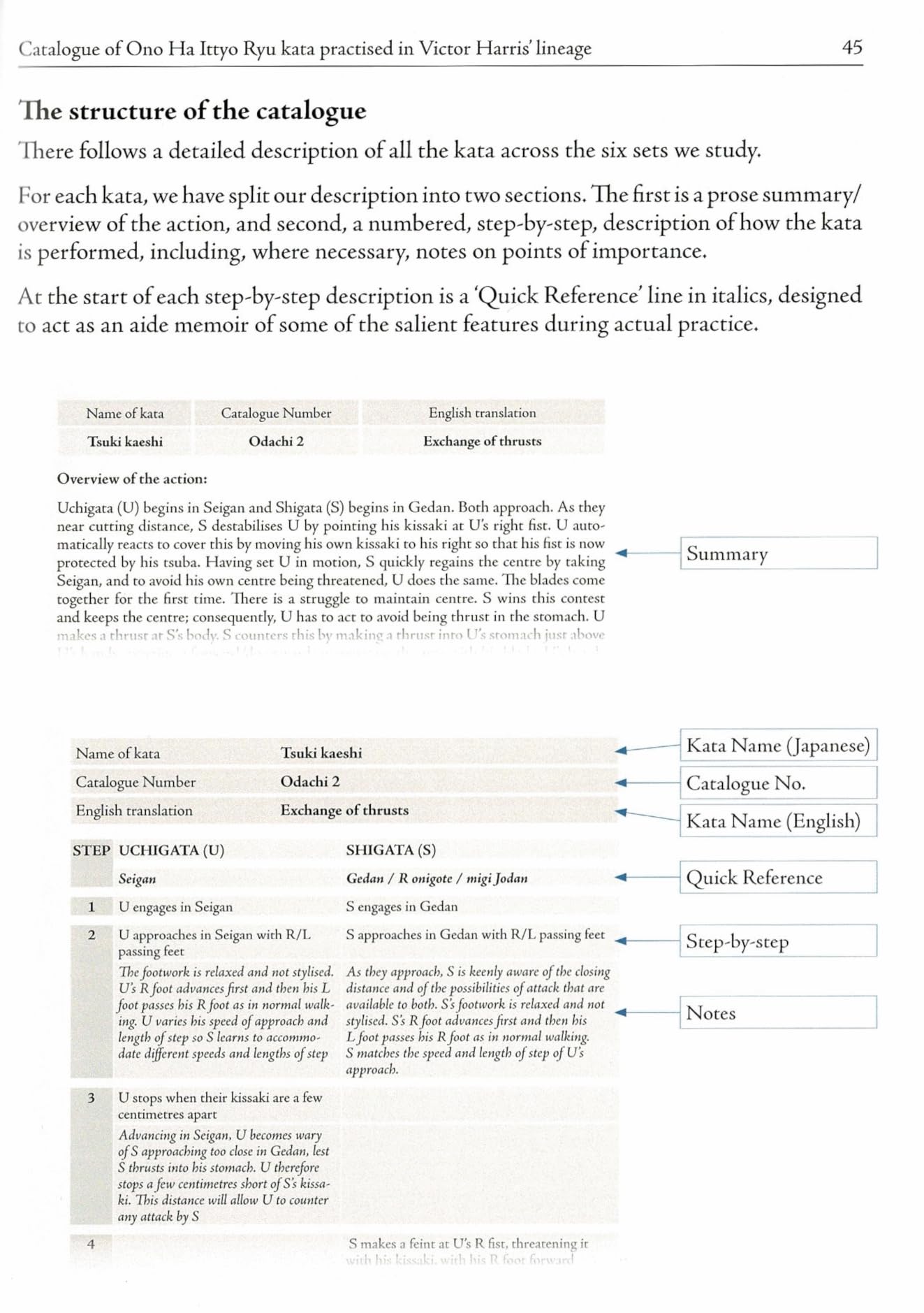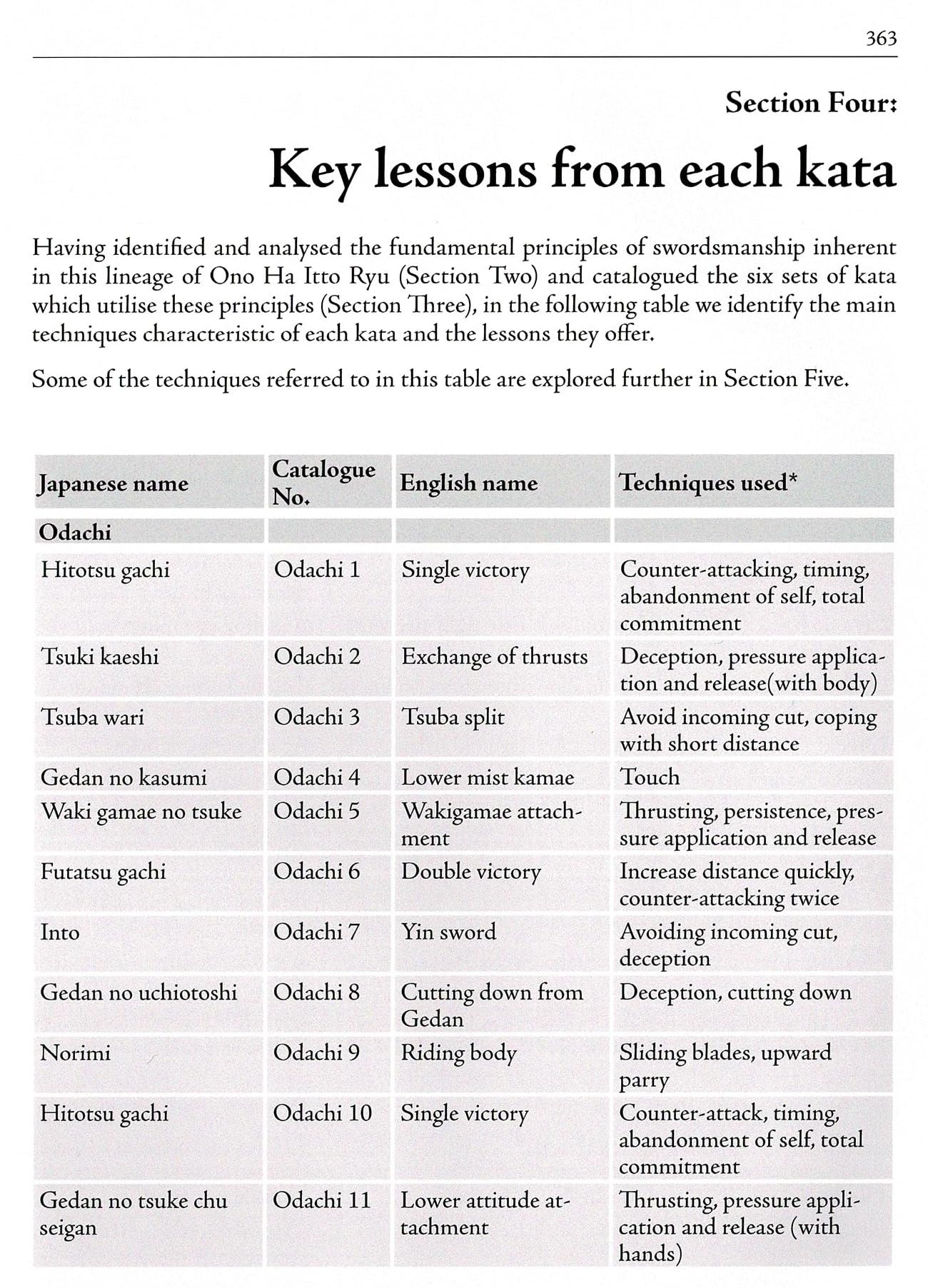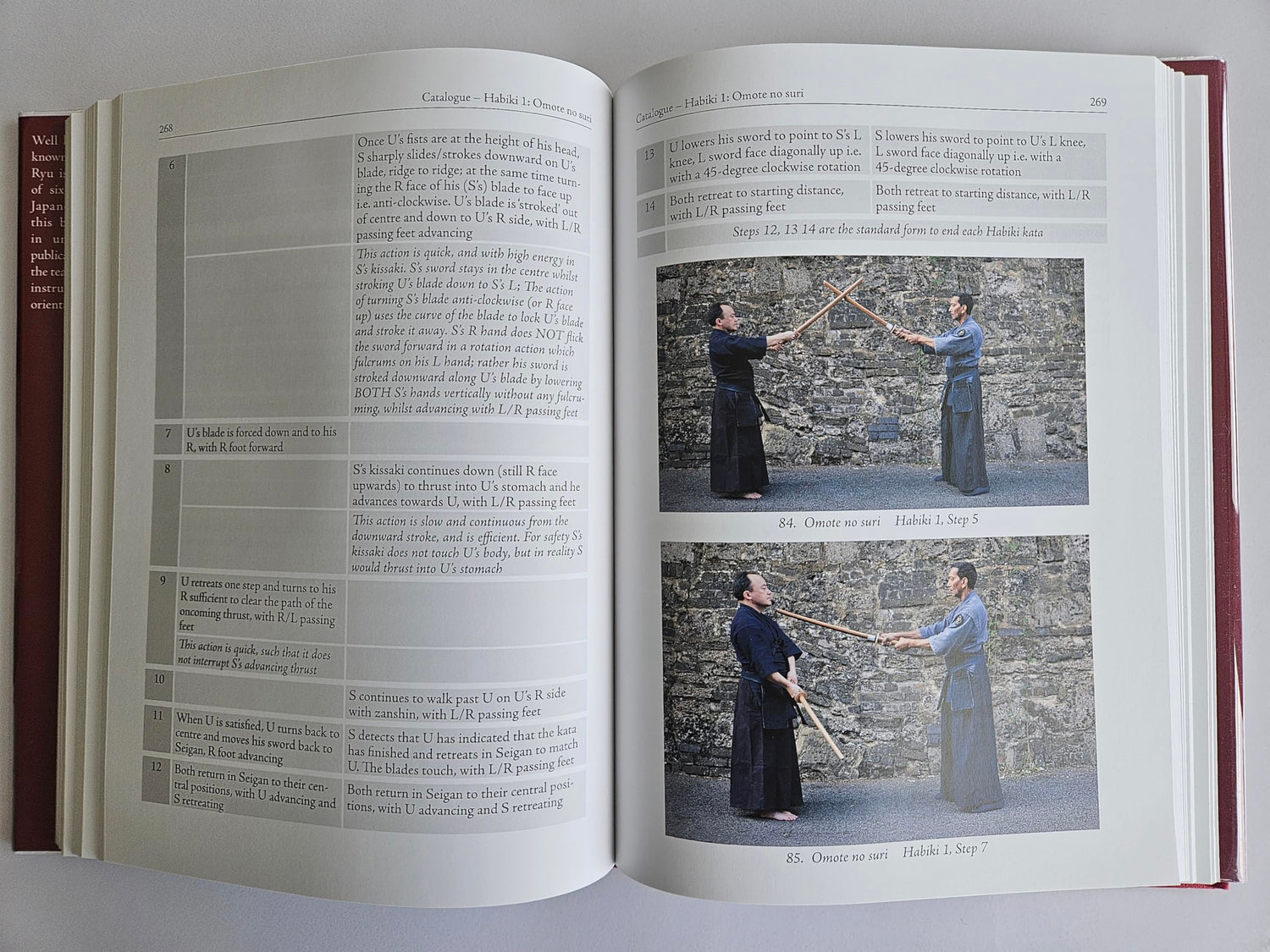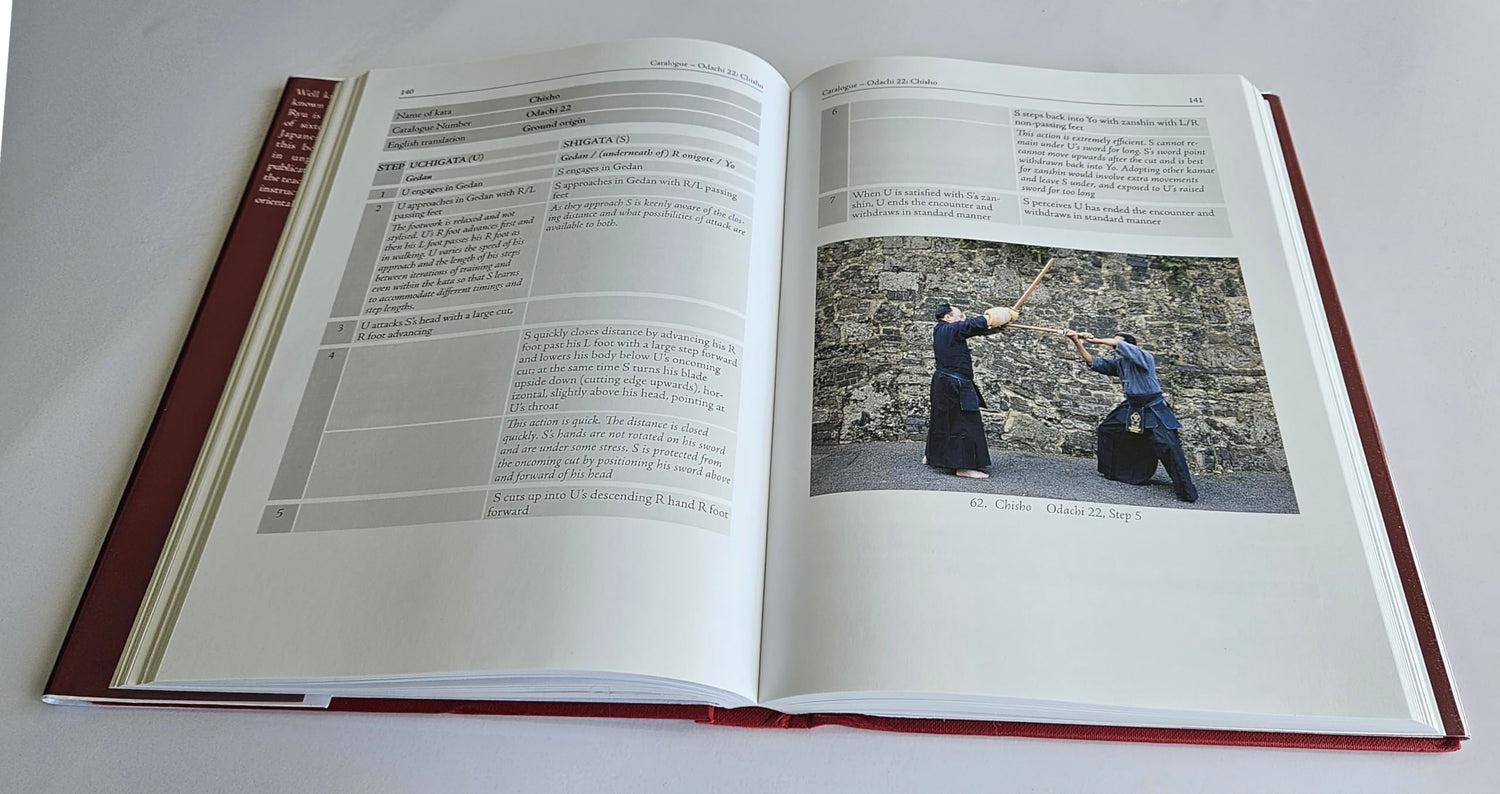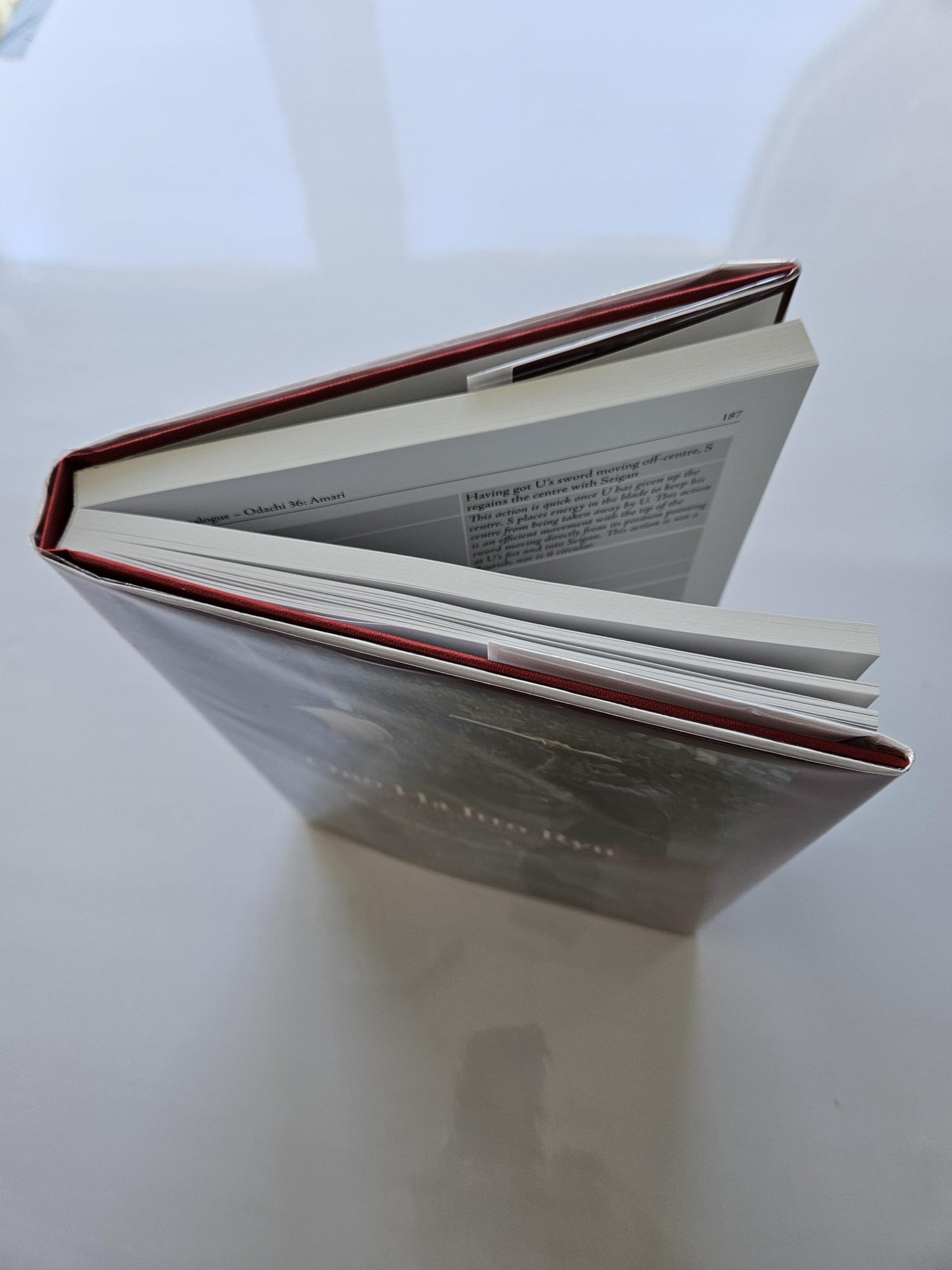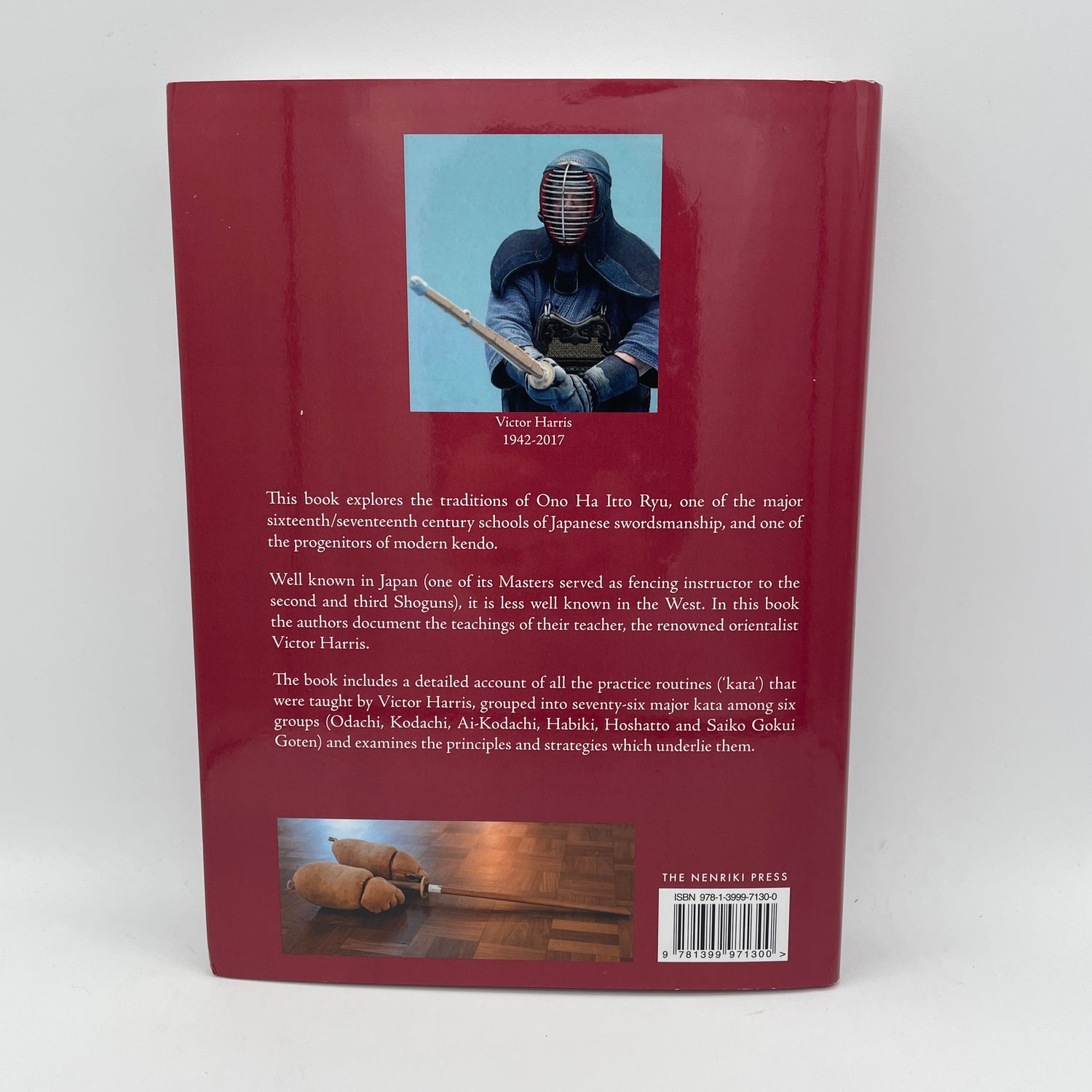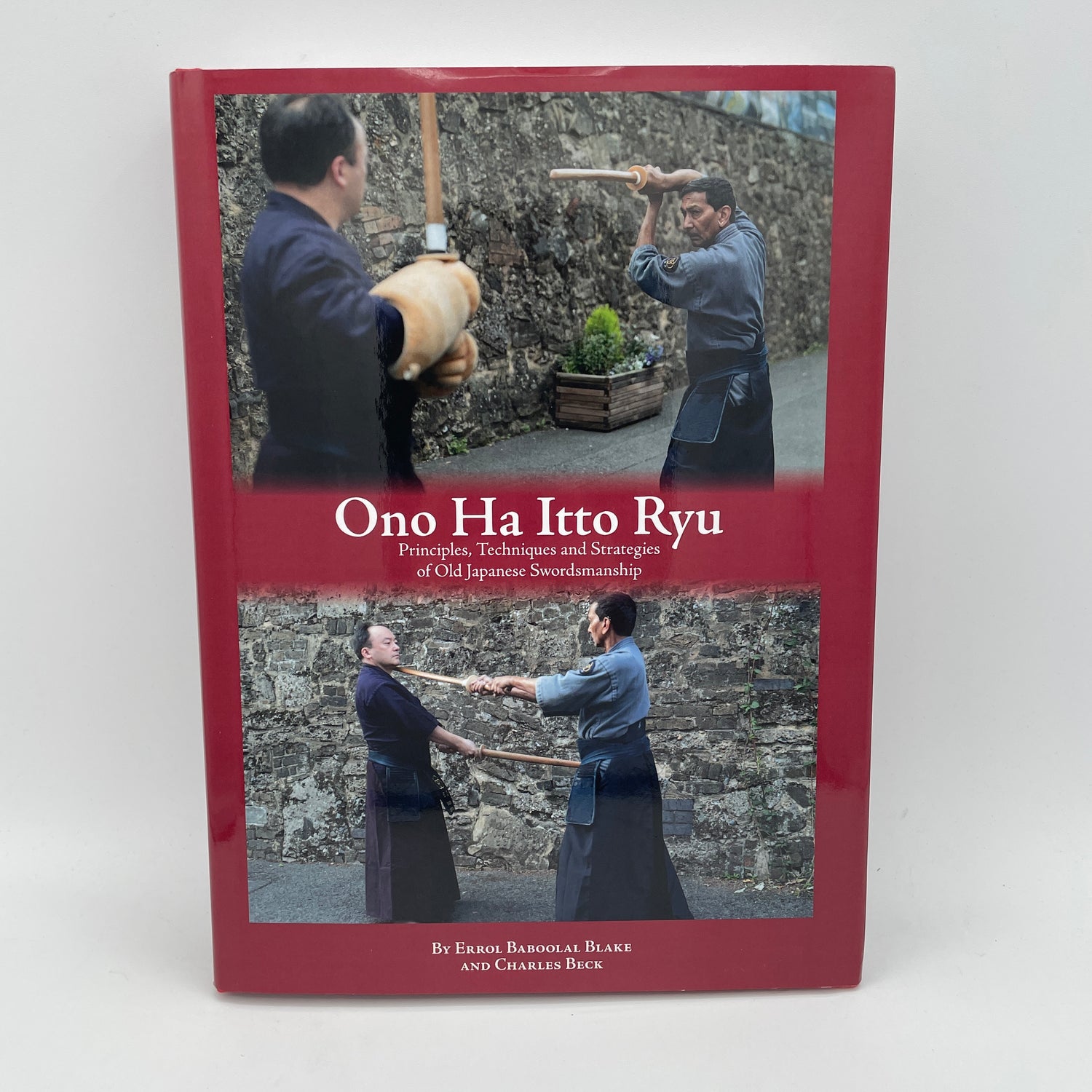Ono Ha Itto Ryu Principles, Techniques & Strategies of Old Japanese Swordsmanship Book by Errol Baboolal Blake & Charles Beck (Hardcover)
This book explores the traditions of Ono Ha Itto Ryu, one of the major sixteenth/seventeenth century schools of Japanese swordsmanship, and one of the progenitors of modern kendo.
Well known in Japan (one of its Masters served as fencing instructor to the second and third Shoguns), it is less well known in the West. In this book the authors document the teachings of their teacher, the renowned orientalist Victor Harris.
The book includes a detailed account of all the practice routines ('kata) that were taught by Victor Harris, grouped into seventy-six major kata among six groups (Odachi, Kodachi, Ai-Kodachi, Habiki, Hoshatto and Saiko Gokui Goten) and examines the principles and strategies which underlie them.
In Section One the authors very briefly describe the history of Ono Ha Itto Ryu. History is not the focus of the book. The book is practical and analytical.
In Section Two the authors identify the fundamental principles of this school of Japanese sword fighting, such as distance, footwork, stances, cutting technique, attack and defence, speed, timing, breathing etc.
In Section Three, which consists of the greater part of the book, the authors describe in great detail the movement and thinking processes involved in the seventy-six (using their numbering system, but traditionally counted at 150 or so) combat engagements. These are presented in easy-to-read tables in a large high-quality hard cover book. They disaggregate this school of Japanese Swordsmanship by stripping out the romance and poetry to present the core features as something that is practical and achievable.
In Sections Four and Five the authors re-assemble the sword school in two unique ways.
In Section Four the sword school is re-assembled with an overview of the techniques of each combat engagement. e.g. counter-attacking, thrusting, deception, pressure application and release, enticing movement, distance and much more.
In Section Five the school is re-assembled with an analysis of the frequency of use of the core strategies discussed in sections Two, Three and Four. Uniquely, they suggest commonalities between Japanese and non-Japanese sword fighting. For example, what are the most popular kamae? What is the common response to the popular kamae? Which engagements use the core techniques most frequently etc.
Section Six briefly explores the inter-relationship between Ono Ha Itto Ryu and modern sport kendo, and argues that they are complementary.
Section Seven is a brief Epilogue.
Length: 408 pages
Publication date: 2024
Couldn't load pickup availability


